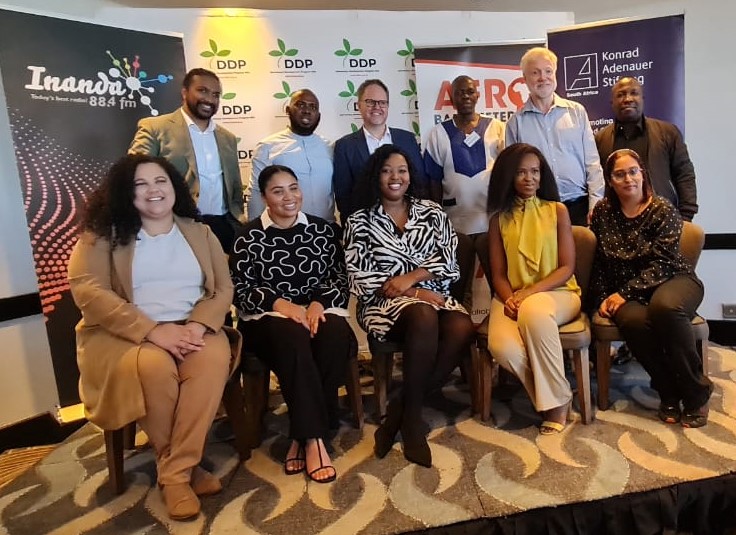Afrobarometer – Partner briefing on SA’s Survey

On 13 June 2023, Afrobarometer in partnership with the Democracy Development Program hosted its partner briefing on South Africa’s survey. The survey focused on elections, climate change and state of democracy in South Africa.
Afrobarometer (AB) is a trusted source of high-quality data and analysis on what Africans are thinking. With an unmatched track record of 350,000+ interviews in 41 countries, representing the views of about 75% of the African population, AB is leading the charge to bridge the continent’s data gap. AB data inform many global indices, such as the Ibrahim Index of African Governance, Transparency International’s Global Corruption Barometer, and the World Bank’s Worldwide Governance Indicators. The data are also used for country risk analyses and by credit rating and forecasting agencies such as the Economist Intelligence Unit. All AB data sets are publicly available on the website and may be analysed free of charge using AB’s online data analysis tool.
The Afrobarometer team in South Africa, led by the Institute for Justice and Reconciliation, interviewed 1,600 adult South Africans in November-December 2022. A sample of this size yields results with a margin of error of +/-2.5 percentage points at a 95% confidence level. Previous surveys have been conducted in South Africa in 2000, 2002, 2006, 2008, 2011, 2015, 2018, and 2021.
The primary outcomes of the survey included:
On electricity:
- Electricity ranks third among the most important problems that South African want their government to address, trailing only unemployment and crime;
- 87% of South Africans say the government is doing a poor job of providing a reliable supply of electricity;
- 59% of citizens say Eskom should be privatised;
- An even greater proportion 76% say the government should allow other actors to generate.
On climate change:
- 51% of South Africans say they have never heard of climate change;
- Women, rural residents, the elderly, the poor and the less educated are less likely to be familiar with climate change;
- Among those who are aware of climate change majority agree that it Is making South Africa worse; the government should take immediate action whatever the cost; citizens and government have an equal role to play in limiting its effects.
On democracy and elections:
- 70% of South Africans are dissatisfied with democracy and 49% say the country is a democracy with major problems;
- 65% of citizens support elections but do not believe they work well to enable voters to remove leaders who do not do what the people want and to ensure that members of parliament reflect voters’ views;
- 39% of the respondents indicated that they did not trust the South African Electoral Commission;
- A growing majority of 72% would be willing to forego elections in favour of a government that delivers security, jobs and housing;
- In a hypothetical election, most citizens indicate they would vote for the ANC, although a significant proportion also say they would not vote, don’t know or refused to answer.
DDP would like to thank Afrobarometer for the work done to gather this crucial data. Additionally, DDP thanks the speakers of the day – Mbali Ntuli (Founder and CEO of Groundwork Collective); Prof. Bheki Mngomezulu (Professor of Political Science and International Relations and Director of the Centre for the Advancement of Non-Racialism and Democracy); and Michael Atkins (Mathematics and Computer Science Expert) – for their expertise and analysis of these key findings.